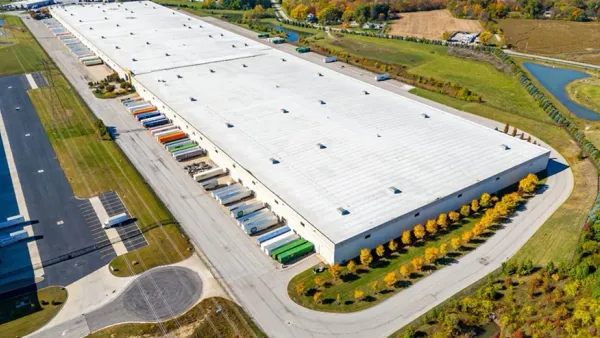Made in China is more than just a label, and it's been an era in American manufacturing ripe for disruption with looming geopolitical tensions and regional challenges. The latest Covid-driven lockdowns have fueled speculations about the resiliency of supply chains and their ability to bounce back into a pre-pandemic JIT (Just-In-Time) model. With staggering wait times and shortages running headlong into the mounting outcry among consumers, supply chain leaders are asking themselves if there is another way?
Rerouting supply chains is complicated
Outsourcing of manufacturing and logistics processes has empowered the global enterprise to meet the American appetite for years. But now, there's no silver bullet for fast, cheap, or easy—any of those perks that lured companies in just decades ago. China is known for being a high-quality provider of manufactured goods and supply chain services and organizations have had a challenging time finding comparable outsourcing alternatives poised to produce on the same scale and level. Now, with growing concerns about timeliness, more organizations are reopening searches for a reliable, consistent alternative that's more predictable for long-term supply chain growth and planning.
"Until now, businesses have passed on some of the South Asian alternatives emerging as competitive alternatives like Vietnam due to cost and timing concerns," explains Apex Logistics International Chief Operating Officer, Sean M. Francisco. "That's because of the burdensome added costs, customs and time constraints when you factor in the extra leg of travel across North Asia or the Middle East. Supply chain leaders are ready for a pragmatic approach to take them out of fire-fighting mode and to the other side of this pandemic."
The numbers show an exit strategy
That's the story the data tells. According to a recent Gartner survey, 33% of supply chain leaders plan to move at least part of their manufacturing to regional alternatives by 2023. Forbes cites a growing list of companies including major tech giants like Apple and Dell rethinking subcontracting strategies after years marked by delays and heavy expenses.
Meanwhile, rising wages and trade wars and tariffs as high as 25% have plagued businesses outsourcing manufacturing. These obstacles might not be so temporary either, with the Biden administration recently making a quiet announcement to evaluate the Trump-administration-imposed tariffs in a "review of necessity". Even with inflation jumping over 7% and energy prices surging amongst Russia's war on Ukraine, the Biden administration has shown no sign of plans to remove the tariffs.
But according to Francisco, Apex's chief operating officer, there's cause for some cautious optimism. "Business leaders spent a good portion of the pandemic so far vetting outsourcing alternatives for greater flexibility and resilience. If anything, it's made supply chain leaders realize that the new normal calls for supply chain diversification. In South Asia, Vietnam, Singapore, Malaysia, Indonesia and the Philippines are alternatives worth considering. At Apex, we're committed to bringing those other possibilities in reach of the American business block."
The freight forwarding and logistics company is focused on supply chains diversifying by tapping into those alternatives with South Asia Connect. The new prepaid service program enables organizations to have a more predictable, timely journey right from the supplier with the air-capacity hedge to offset unforeseen circumstances, reducing the cost and time of arrival with one CFS (Container Freight Station) bonded organization that works across FTZ (Foreign Trade Zone) and U.S. Custom's Controlled Services to expedite delivery. Companies can learn more about locking in South Asia Connect rates now by visiting ApexGlobe.com.
"Our South Asia Connect program saves time and energy. By chartering our carriers from South Asia through Hong Kong, we're compressing fuel and hours from being wasted. All while connecting with our customers wherever they are—with accessible gateway locations in Los Angeles, Chicago, Rickenbacker and New York. It's time for businesses to take back more control over their supply chain and logistics planning." Francisco says.










